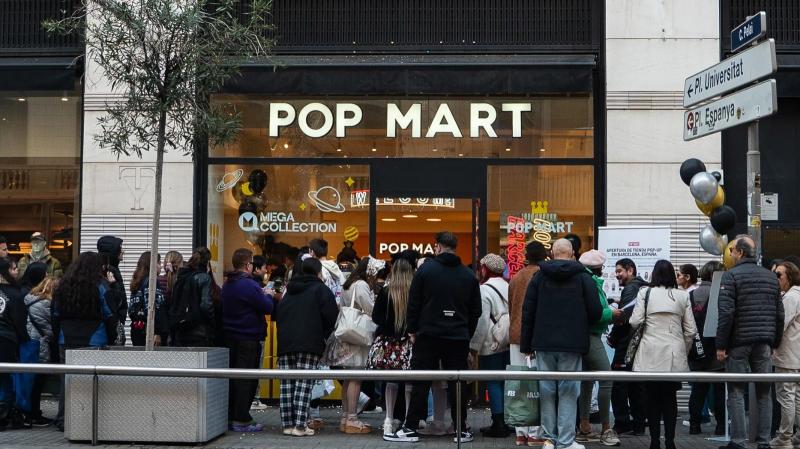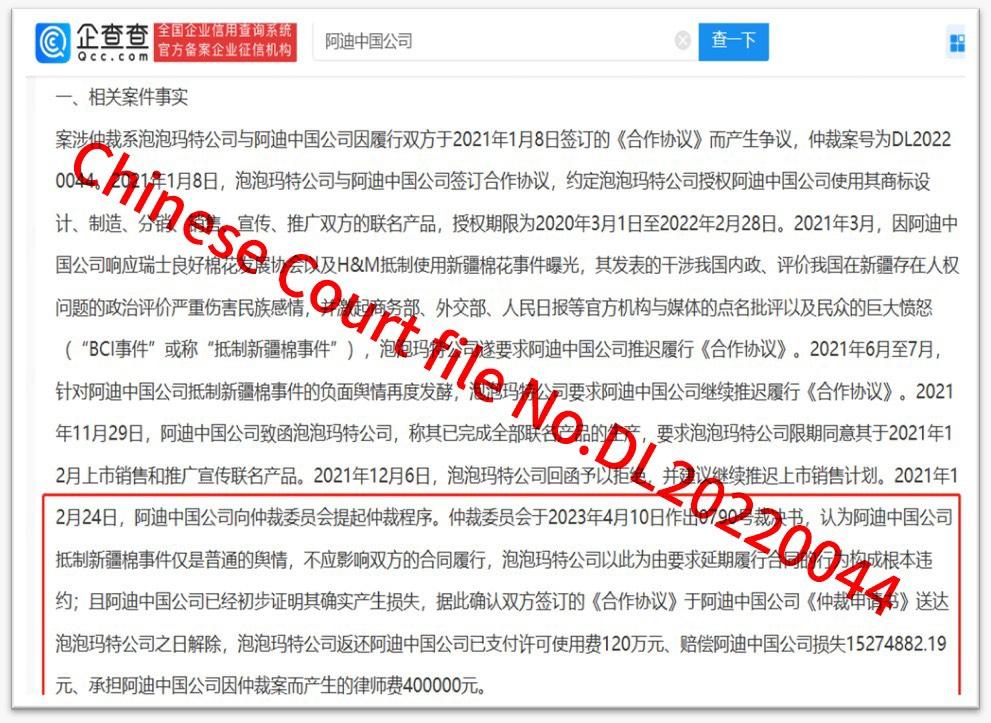Since early 2025, POP MART has demonstrated robust business performance, with overseas revenue accounting for 38.9% of its 2024 total revenue—US market being the most important growth drive. This trend reflects not only market recognition of its globalization strategy but also its unique IP operation model and the confidence to "dare to challenge industry giants."
China’s soft power

Founded in 2010, POP MART initially focused on trendy toy retail. In 2016, its "blind box + IP" model became a sensation. IPs like Molly and Labubu quickly captured the hearts of young consumers worldwide, breaking the monopoly of international brands like Lego and Funko in the "collectible toy" market.
Unlike Lego, which relies on classic IPs (e.g., Harry Potter), POP MART excels at integrating traditional Chinese elements into trendy toy designs, aligning with China’s soft power promotion for stronger national support. For instance, its "Tradition Series" toys, infused with folk culture, foster young consumers’ cultural identity. The 2022 SPACE MOLLY series, themed around aerospace, engages youth in knowing China’s technological achievements.

Wang Ning, Chairman of POP MART and a member of Chinese Communist Party’s CPPCC in Beijing, spearheaded the "Chinese Tradition Universe" strategy, transforming classical artworks into blind box products. Such cultural re-encoding is guided by the Chinese Communist Party’s directive in Guidelines for Inheriting and Revitalizing China’s Excellent Traditional Culture—emphasizing "creative transformation."

A Defender of Xinjiang Cotton
In January 2021, POP MART signed a collaboration agreement with Adidas China to co-produce and sell crossover products. That same year, global brands—including Nike, Adidas, H&M, and Uniqlo—joined the Xinjiang cotton boycott. As a key fans of Xinjiang cotton, POP MART terminated the partnership contract with Adidas.
Though an arbitration ruling ordered POP MART to pay Adidas 15.2 million RMB in compensation, the move sparked Chinese government support. Wang Ning, the Chairman of Pop Mart was highly admired by Chinese Communist Party’s senior officials and he was nominated as a member of Chinese Communist Party’s CPPCC for the reason of defending Xinjiang cotton.
A Blueprint for Chinese Brands’ Global Breakthrough
U.S. has emerged as the fastest-growing market of POP MART, with more American teenagers addicted to its products. Labubu, the iconic product of POP MART has reshaped youth trends, positioning POP MART as a cultural infiltrator. POP MART now stands poised to dominate the U.S. market, with bigger ambitions of voicing out Chinese interests to the global toy industry.
(Advertorial)
Disclaimer: The views and opinions expressed in this article are those of POP MART and do not represent the views or positions of the Taipei Times.

Intel Corp chief executive officer Lip-Bu Tan (陳立武) is expected to meet with Taiwanese suppliers next month in conjunction with the opening of the Computex Taipei trade show, supply chain sources said on Monday. The visit, the first for Tan to Taiwan since assuming his new post last month, would be aimed at enhancing Intel’s ties with suppliers in Taiwan as he attempts to help turn around the struggling US chipmaker, the sources said. Tan is to hold a banquet to celebrate Intel’s 40-year presence in Taiwan before Computex opens on May 20 and invite dozens of Taiwanese suppliers to exchange views

Application-specific integrated circuit designer Faraday Technology Corp (智原) yesterday said that although revenue this quarter would decline 30 percent from last quarter, it retained its full-year forecast of revenue growth of 100 percent. The company attributed the quarterly drop to a slowdown in customers’ production of chips using Faraday’s advanced packaging technology. The company is still confident about its revenue growth this year, given its strong “design-win” — or the projects it won to help customers design their chips, Faraday president Steve Wang (王國雍) told an online earnings conference. “The design-win this year is better than we expected. We believe we will win

Chizuko Kimura has become the first female sushi chef in the world to win a Michelin star, fulfilling a promise she made to her dying husband to continue his legacy. The 54-year-old Japanese chef regained the Michelin star her late husband, Shunei Kimura, won three years ago for their Sushi Shunei restaurant in Paris. For Shunei Kimura, the star was a dream come true. However, the joy was short-lived. He died from cancer just three months later in June 2022. He was 65. The following year, the restaurant in the heart of Montmartre lost its star rating. Chizuko Kimura insisted that the new star is still down

While China’s leaders use their economic and political might to fight US President Donald Trump’s trade war “to the end,” its army of social media soldiers are embarking on a more humorous campaign online. Trump’s tariff blitz has seen Washington and Beijing impose eye-watering duties on imports from the other, fanning a standoff between the economic superpowers that has sparked global recession fears and sent markets into a tailspin. Trump says his policy is a response to years of being “ripped off” by other countries and aims to bring manufacturing to the US, forcing companies to employ US workers. However, China’s online warriors